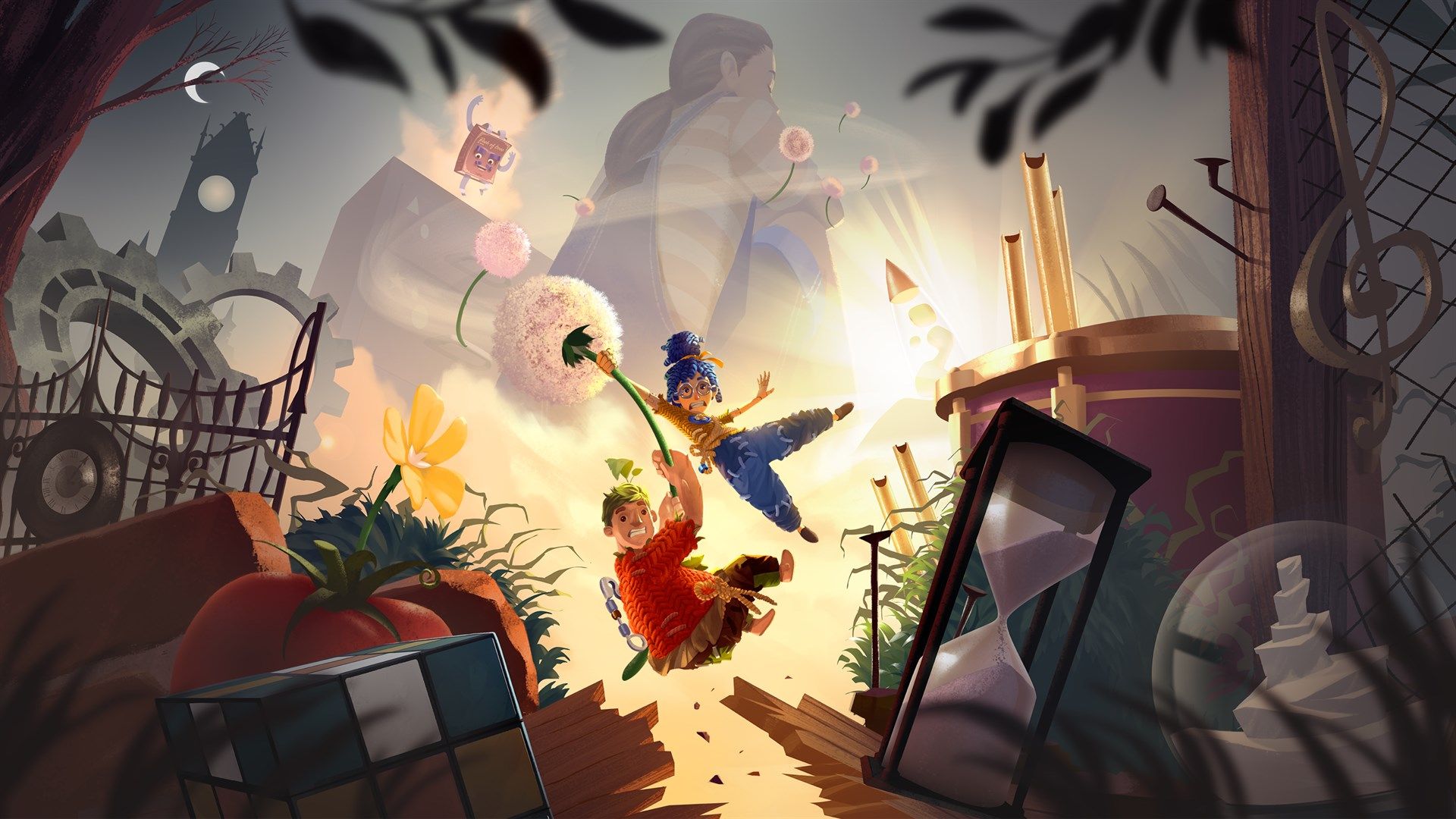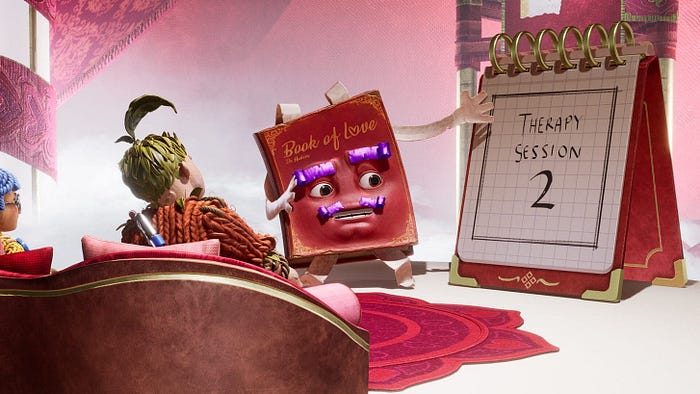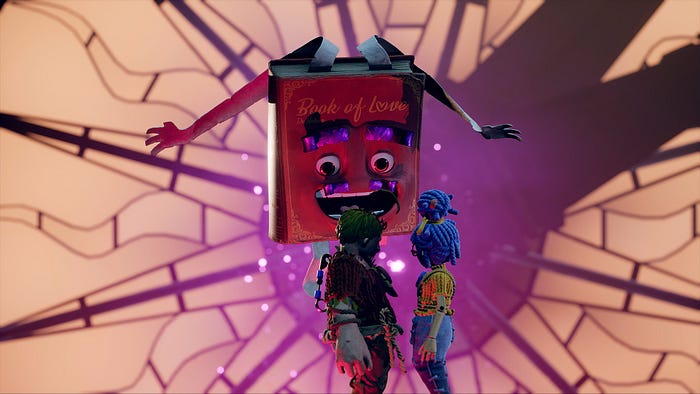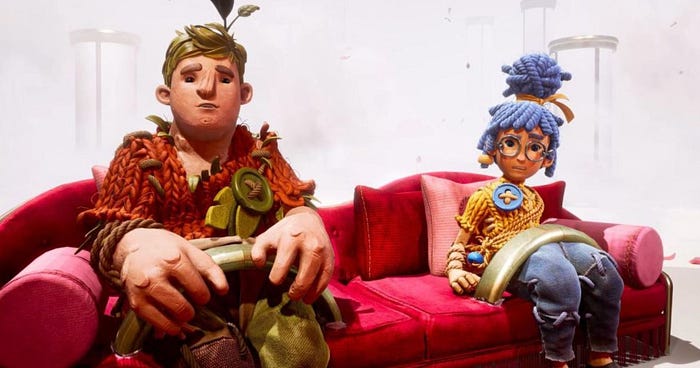It Takes Two: The Happy Ending I Didn’t Want
Sometimes love does not heal all

Josef Fares founded Hazelight Studios in 2014, following the success of Brothers: A Tale of Two Sons. Hazelight, under Fares, directed two more very unique games: A Way Out and It Takes Two. He is known for creating games with deep storylines and mature themes, and if you’ve played them, you’ll know what I mean.
These three games all have a common feature: you control two characters. But the gameplay has advanced from one controller with Brothers: A Tale of Two Sons, through couch co-op split screen with A Way Out, and now online or split screen with It Takes Two. The most recent title, It Takes Two, has mastered dual-play storytelling. The gameplay is intuitive and unique, and utilizes teamwork and problem solving (not to mention a touching story and beautiful graphics thanks to Unreal Engine 4). In the under-appreciated world of co-op games, the experience is unmatched and Hazelight has really cornered the market.
There is also another commonality in Fares’ games: intense storytelling surrounding difficult themes. In Brothers: A Tale of Two Sons, we experience deep loss. In A Way Out, two inmates escape prison by working together, but in the end, betrayal takes one of their lives.
So I expected a bittersweet ending in It Takes Two. Instead, the healing of a failing marriage through a young daughter caused my partner and I intense internal conflict as the story tore into our own pasts. Both of us are from broken homes, both have experienced a difficult divorce, and he has a daughter around Rose’s age. In hindsight, although the game is fantastic, it was probably not the best game for us to play together. I remember bonding and having such a positive experience playing Gris side by side on the couch. Reflecting on this, a challenging realization dawned on me: perhaps we relate more to trauma than to love.
In It Takes Two’s opening cutscene, Rose, Cody, and May sit around the dinner table. The conversation had with Rose would change her life forever.
“What we’re trying to say darling, is that, well… Mom and dad, we’ve decided to go our separate ways”.
There is no easy way to tell a child. I felt a sense of tension emerge between my partner and I. I glanced over, trying not to draw too much attention as he shifted in his seat, began fidgeting, and staring at the stark walls in his bedroom.
“Are you okay?” I inquired.
“I don’t like this game,” he replied flatly.
It was a punch to the gut. I pride myself in picking games for us to play together, and Hazelight is top tier co-op. I attempted to reassure him.
“Don’t worry, these guys make excellent games, just try not to judge it until we at least get to the gameplay.”
My partner had been there; he’d been at the dinner table having that exact conversation. He was five years old. It was a conversation that shattered his world. His father packed up and left the country shortly afterwards. He is still in pain when discussing his parents’ divorce.
The thing is, we don’t understand as children. We take the blame. We bargain with our parents. We ask difficult questions. We make the adults pretend.
I was shielded from this because my biological parents were never an item. This particular dinner table conversation never happened in my household. Divorce schmorce — people get divorced every day, I thought to myself (me included). Why doesn’t he just enjoy the game and not think so deeply about the story? Sometimes I think myself impermeable, although I’m anything but.

Then it hits me. The Book of Love’s introduction is comically cheesy (on top of Rose’s desperate attempts to voodoo her parents into loving each other). It made me uncomfortable. I started to roll my eyes and shift in my seat. That corny love-and-feel-good stuff has always made me want to run in the other direction. We both looked at each other.
“This guy is annoying,” he said.
Phew. I nodded in agreement. “Yeah, hopefully he doesn’t ruin the game.”
Was the game supposed to be this hard? And not in a gameplay sense.
We painfully trudged through the cutscenes to finally arrive at some gameplay. Finally, I mused. Now he can see what Hazelight gameplay is all about. These graphics are stunning! Wow! Bounce on this, jump off that, smash these bottles. Solve this puzzle. Much better.
We found joy in the mini-games, competing against each other while we showed off our button-mashing and aiming skills. I whomped him at first, then with a little practice, he beat me. We mastered the team mechanics in cooperative gameplay. We marvelled at the scenery as we entered each imaginative biome.

As we continued playing, I realized we were deep into marriage therapy via doll-play and puzzles. Cody and May bickered through old resentments as they battled through the suction of an angry vacuum, a murderous toolbox, malevolent squirrels, laser beam space ships, and killer wasps (to name a few). It was clear that these characters still deeply cared for one another and would do anything for Rose.
My anxiety brain won out as I wondered what struggles and conversations my partner had during his own divorce. He had shared with me how much effort he had put into his marriage for the sake of his young daughter, and it caused a pang of insecurity (on top of battling an intense wave of my own shame around my own divorce and why I’d never worked this hard in my marriage — I’d avoided the difficult conversations, checked out mentally, and made excuses).
I’ll say it again: UGH.
The end of the game was the worst part. Fireworks exploded in the background, sentimental Hallmark-esque music played, and the protagonists embraced and kissed. The Book of Love proclaimed love heals all — I wanted to puke.
You know what? Love doesn’t heal all. Not always. Sometimes the healing comes from taking space. Sometimes healing is about acknowledging you’ve grown apart, that you lack the same values, or have nothing in common, and can’t grow as a couple. Sometimes healing is a mental break down on the kitchen floor, a shattered wine bottle on the floor of a cold and dingy “we’re separated” apartment.
Sometimes the healing comes in divorce.
I felt resentment knowing my parents were never a couple. They never fought for me. I ended my own marriage never having witnessed positive role models in order to understand true partnership, love, or support. I felt my partner’s tension rise — he had been Rose’s age when his parents separated, and that story had repeated when his own marriage had ended. For both of us, there had never been an opportunity for reconciliation. We both came from broken families. We both experienced the pain of our own parents never making an effort to stay together as well as our own failed marriages.
It might be devastating for a child to endure divorce and its aftermath. But the alternative can be worse. The screaming, door slamming, fighting, addictions, and hateful words spewed like daggers and forcing children to take sides. That is far more damaging. Never seeing your parents embrace, kiss, or smile — never hearing them laugh and enjoy conversation together — is crushing and anxiety-inducing for a child.

It Takes Two hit my partner and I on far too many emotional fronts.
It feels dramatic putting all this into writing. But I always find that I feel a far stronger emotional resonance with games that have painful endings riddled in grief and loss. Red Dead Redemption, The Last of Us, Mass Effect, What Remains of Edith Finch, Telltale’s The Walking Dead, and Gris are the examples that come to mind.
But It Takes Two made me want to switch it off.
Happy endings? I can’t relate. I squirm thinking about them. It’s clear that this wasn’t the developer’s intention, and I know that I have a long way to go in terms of my own healing. I truly hope Rose, May, and Cody’s story ends happily ever after. But I certainly won’t fault them if it ends in 50/50 custody with their assets split and their house on the market.
